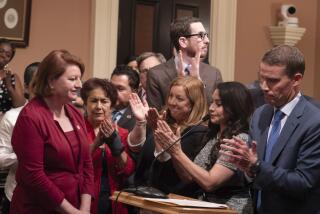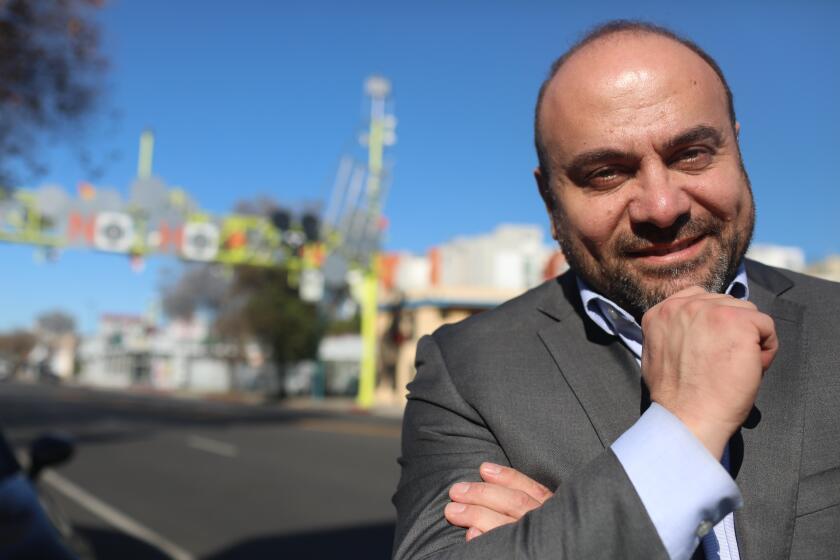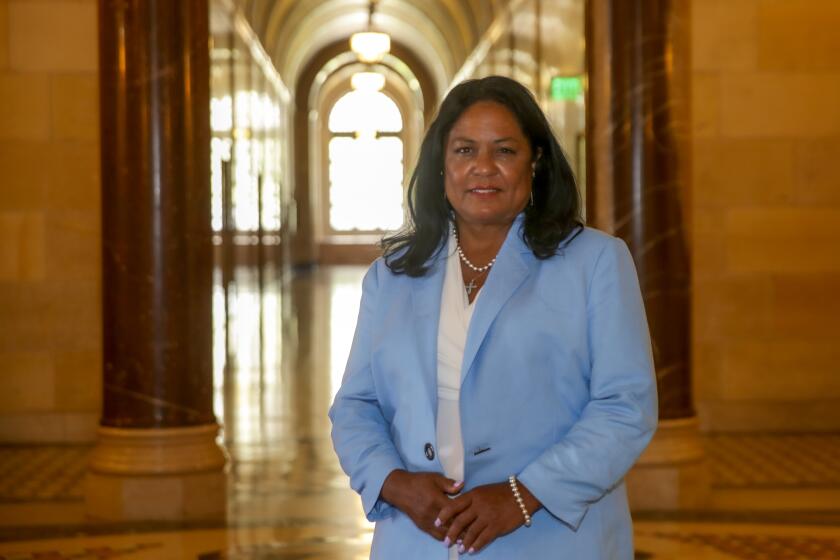Editorial: Brett Kavanaugh’s #MeToo reckoning

Thursday’s Senate Judiciary Committee hearing will be both dramatic and extraordinary. Barring any unforeseen developments — and God only knows what might happen next — California psychology professor Christine Blasey Ford will publicly accuse Supreme Court nominee Brett Kavanaugh of sexually assaulting her when they were teenagers and Kavanaugh will repeat his fervent denials, while the nation watches on live TV and tries to determine who is telling the truth.
Of course, the future of the U.S. Supreme Court hangs in the balance, but equally important are the cultural implications of Thursday’s showdown, which could last just as long and run just as deep. The hearing and the very serious charges that made it necessary are coming in the midst of the powerful #MeToo movement that has swept the country in the last year. The testimony will be narrowly focused on what Kavanaugh did or didn’t do back in 1982, but the ramifications of what is said and done by the senators and the witnesses will go much farther.
Just look at Anita Hill’s testimony in 1991 that then-Supreme Court nominee Clarence Thomas sexually harassed her in the workplace. The rushed hearings and belittling treatment of Hill by senators exposed the pitfalls that come with publicly accusing the powerful. Thomas was ultimately seated on the court. But Hill’s allegations shined a spotlight on sexual misconduct, put harassers on notice that attitudes were slowly changing, and inspired a wave of women to run for and win elected office.
The future of the U.S. Supreme Court hangs in the balance, but equally important are the cultural implications of Thursday’s showdown.
Now there is again a reckoning underway with sexual misconduct. It is long overdue and badly needed. The fact is that 27 years after Hill came forward, sexual harassment and sexual assault remain shockingly common and all-too-often unpunished. Women are still reluctant to come forward when they are abused or mistreated. Perpetrators offend and re-offend, often with impunity. (Finally, this week, Bill Cosby was sentenced to prison.) It remains easy for women to be dismissed by those in power. (Consider President Trump’s snide tweet in which he wondered “if the attack on Dr. Ford was as bad as she says.”)
At Thursday’s hearing, it won’t just be Ford and Kavanaugh under scrutiny. There will be attention paid as well to how the Judiciary Committee, which is woefully short of female voices, handles such sensitive and serious allegations. Just four of the 21 members of the committee are women. The GOP seats are all filled by men, which is no doubt why Chairman Charles E. Grassley (R-Iowa) chose to fly in a female attorney to question both Ford and Kavanaugh.
Grassley said the hiring of Rachel Miller, a sex-crimes prosecutor from Arizona, was an attempt to “de-politicize the process” and avoid “grandstanding.” That would certainly be a relief after what we’ve seen in recent weeks. At Thursday’s hearing, the senators from both parties need to act respectfully and listen with open minds. Both Ford and Kavanaugh must be allowed to make their cases. We’ve come too far to repeat the mistakes of the Clarence Thomas nomination hearings nearly three decades ago, when Hill faced demeaning inquiries, such as when Alabama Sen. Howell Heflin asked whether she was a “scorned woman” or a “zealot civil rights believer.”
Enter the Fray: First takes on the news of the minute from L.A. Times Opinion »
Republicans have already failed to act with appropriate gravity by refusing to request an FBI investigation into Ford’s charges before the hearing. Nor has there been an investigation into the newer allegations of sexual misconduct from a former Yale University classmate who says he exposed himself in front of her during a college dorm room party, and a woman who said a youthful Kavanaugh was present when she was gang raped decades ago. Kavanaugh called the allegations false and a “grotesque and obvious character assassination.”
The senators have a difficult job ahead to untangle what really happened 30 years ago. Even if an unequivocal determination cannot be made, they have an obligation to try to get as close to the truth as possible, and not to let this devolve into a rote exercise or a partisan charade.
Like many of the shocking stories that have characterized the latest #MeToo moment, the Kavanaugh case raises a number of challenging and complex issues. Among them are how to separate truth from falsehood in he-said-she-said allegations; how to make it easier for women to come forward when they are assaulted; how to distinguish between more egregious and less egregious allegations of sexual misconduct; and how to think about misbehavior that may have occurred in the past, even decades ago.
This hearing is not the only #MeToo showdown there will be, but it’s vital that senators get this one right.
Follow the Opinion section on Twitter @latimesopinion and Facebook
More to Read
A cure for the common opinion
Get thought-provoking perspectives with our weekly newsletter.
You may occasionally receive promotional content from the Los Angeles Times.










